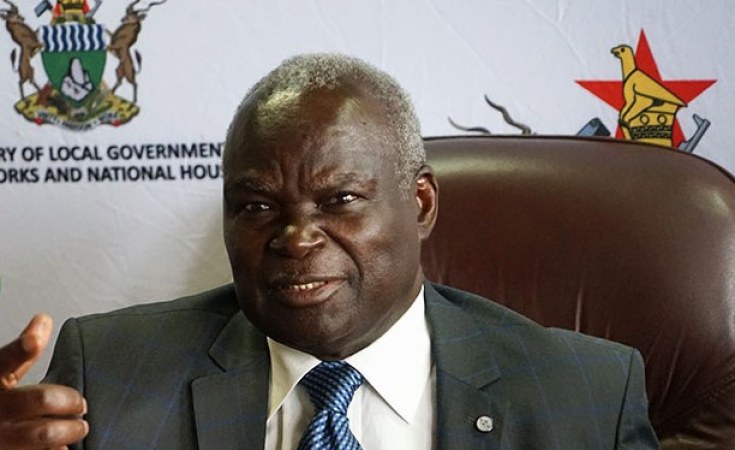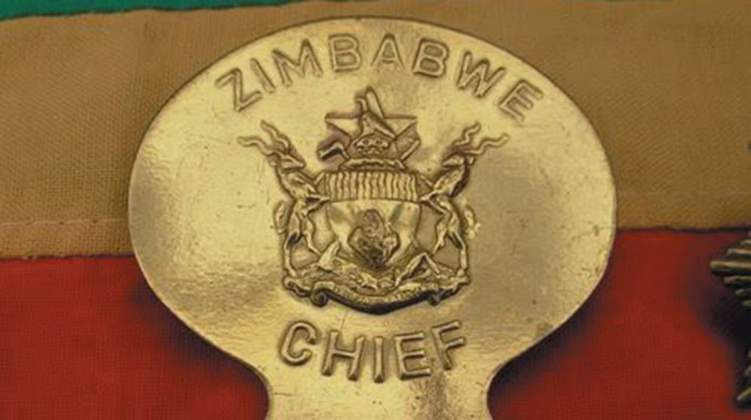
GLEN VIEW residents have petitioned the Harare City Council over the signed memorandum of agreement (MOA) for waste to energy project with Georgenix BV under the supervision of Local Government minister July Moyo on February 28, 2022.
In the petition, the residents raised critical issues that considering the revenue collected by the City of Harare, “the local authority had no capacity to pay US$40 per tonne of waste and that the ratepayers of Harare pay their rates in RTGS, but the agreement is in US dollars, which will see the City of Harare carrying the burden of the exchange rate loss”.
On the other hand, the residents cited that there was no agreement or consultations that were conducted between the City of Harare and residents to use devolution funds to pay Georgenix BV waste disposal fees for the waste to energy project.
According to the petition, the waste to energy project was being imposed by central government and the city council on the residents of Harare and the costs of the project outweighs its benefits to the residents and ratepayers of Harare.
The residents lamented that the provisions of the agreement seek to monopolise waste collection, which has serious implications on people who are selling plastic waste for livelihoods.
The residents called on the Harare City Council to respect the Constitution, and allow for democratic local governance in Harare, ensure citizen participation and involvement in local governance processes and uphold Chapter 14 of the Constitution on devolution by doing the following:
- Set up a special committee in terms of section 100 of the Urban Councils Act 29:15 to investigate the feasibility and sustainability of the waste to energy project.
- Conduct broader consultations with residents, stakeholders and ratepayers of Harare by unpacking how the project will be operating and solicit residents’ views and recommendations on the project.
- Require Georgenix BV to appear before stakeholders, ratepayers and residents and make a presentation of the waste to energy to allow public scrutiny.
The Combined Harare Residents Association calls on both central government and the local authority to respect citizen participation on development issues.-Combined Harare Residents Association
Sowing seeds of illegitimacy
- Chamisa under fire over US$120K donation
- Mavhunga puts DeMbare into Chibuku quarterfinals
- Pension funds bet on Cabora Bassa oilfields
- Councils defy govt fire tender directive
Keep Reading
N Saturday March 26, 2022, Zimbabwe held the much-anticipated and contested by-elections, coming on the backdrop of a long COVID-19-induced hiatus in electoral activity.
The elections came barely 12 months before the 2023 harmonised elections.
In these by-elections, 28 parliamentary constituencies and 105 council seats were contested following recalls of Members of Parliament and councillors from the MDC Alliance, and deaths of some of them.
While the elections represented 13,3% of parliamentary seats and 5,4% of local government seats in Zimbabwe, they presented an opportunity through practice, in making our elections better through successive, recurrent conduct.
In the same vein, they also presented an opportunity to test the credibility of our electoral processes through mere assessment based on universally accepted benchmarks.
This latest Crisis in Zimbabwe Coalition report focuses on the credibility of elections as assessed against benchmarks set in key regional statutes, namely the African Charter on Democracy, Elections and Governance as well as the Southern Africa Development Community Principles and Guidelines Governing Democratic Elections.
In its analysis, the report focuses on the value and role of elections in democracy and development and makes a measured assessment of the environment under which elections are held in Zimbabwe.
The key question asked is: Did the pre-electoral environment and what transpired on election day qualify these elections as free, fair and credible?
Did these elections give the ordinary voter the power to genuinely influence the country’s governance processes?
Was the electoral management body, the Zimbabwe Electoral Commission, up to its task as measured by the Constitution of Zimbabwe?
Are State institutions, like the police, courts and the media impartial? What is the status and role of women, and their space in this election?
In the final analysis, an easy verdict is passed on the credibility of the by-elections.-Crisis in Zimbabwe Coalition
Escalating Afrophobic attacks in SA must be condemned
CITIZENS in Action Southern Africa (Ciasa) condemns in the strongest of terms the recent Afrophobic attacks which resulted in the death of one Zimbabwean in Diepsloot, Johannesburg, South Africa.
The brutal attack, by a mob at night, resulted in the gruesome death of an undocumented Zimbabwean migrant, Elvis Nyathi, who stayed in Diepsloot.
In recent months, there has been a build-up of regular Afrophobic attacks by groups of vigilantes organised under Operation Dudula, which have been targeting foreign citizens in South Africa’s poor communities.
What is worrying about this wave of violence is that it is being flamed up by Afrophobic incitement from populist politicians seeking cheap political mileage.
In addition, the actions of these politicians undermine the spirit of Ubuntu and Pan-Africanism which recognises the humanity of all African citizens.
Ciasa urges the people of South Africa to remember the people-to-people solidarity and support which was extended to them by fellow Africans for their country to end apartheid.
While the majority of ordinary South Africans are still suffering the dual yoke of poverty and inequality, targeting foreigners for these frustrations is un-African and would not resolve these deep and complex problems.
Ciasa reiterates that the majority of poor migrants in South Africa are victims of severe economic and political pressures in their countries of origins such as the Democratic Republic of Congo, Malawi, Mozambique and Zimbabwe.
While there are some involved in criminal activities, the majority of these migrants undertake innocent work which serves the South African economy.
In addition, Ciasa appreciates the need for immigrants to enter South Africa lawfully.
However, any action to address the current anomalies, of lacking documentation, must be done in full compliance with international law and due consideration of the push and pull factors prevailing in the Sadc region and broader African context.
Ciasa urges South African authorities to rein in politicians and vigilantes which are spreading xenophobic hate and perpetrating violence against poor foreigners.
The country is bound by both the United Nations Charter and the African Charter on Human and People’s Rights, all of which speak to sanctity of human life and the country has obligation to protect this fundamental right.
We further urge the South African government to investigate, arrest and prosecute perpetrators of Afrophobic attacks in the country.
The current failure to effectively deal with this scourge using the judicial system has resulted in impunity which is further fuelling the problem.
We also urge South Africa’s civil society organisations, trade unions and progressive political parties to engage the responsible authorities and pressure them to act on Afrophobia.
In addition, they must also engage hotspot communities to build a culture of peace and tolerance to stem out the fires of Afrophobia which are spreading across South Africa.-Ciasa Information Department












